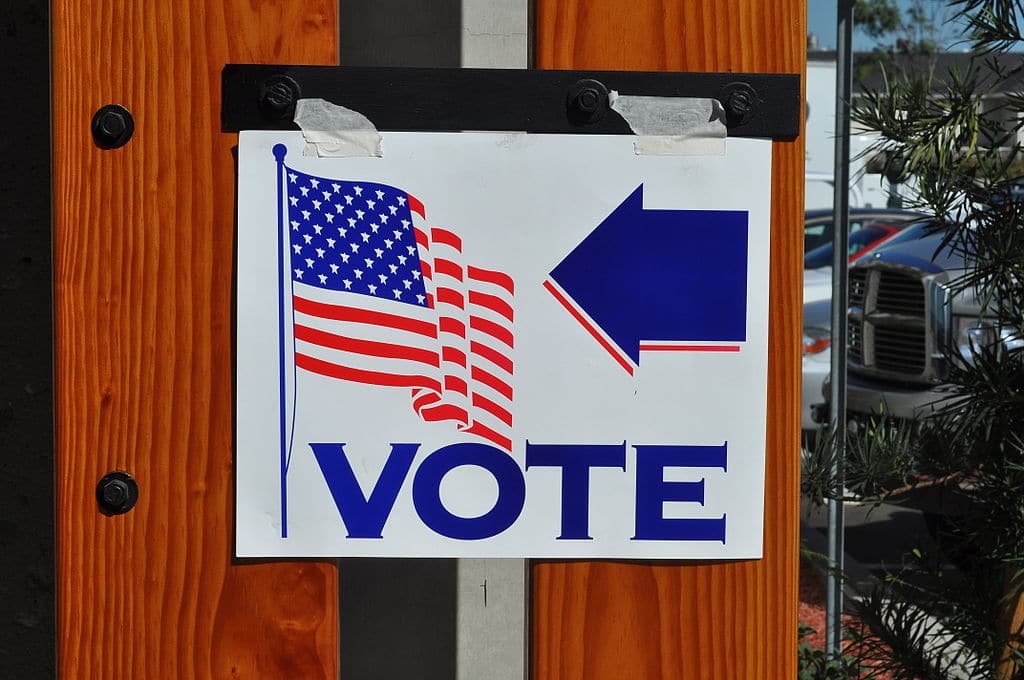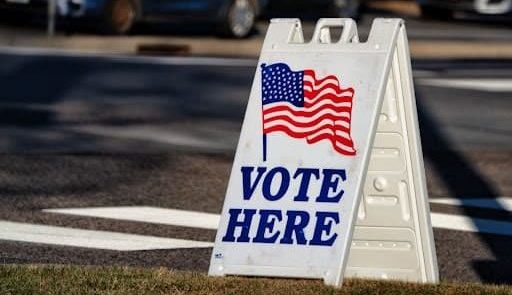A long line of people testified at an eight-hour public hearing last week to share their views about a proposed measure to revamp the city’s electoral process. Numerous speakers testified both for and against implementing ranked-choice voting in D.C. and voiced differing opinions on how it would impact underrepresented groups.
Supporters of the bill, called the Voter Ownership, Integrity, Choice, and Equity Act (VOICE Act), argued that ranked-choice voting makes elections fairer, while opponents countered that such a system would make the process more confusing.
The debate over ranked-choice voting comes amid a much broader discussion among D.C. lawmakers over how to make the electoral process more inclusive. During the pandemic, the Board of Elections began automatically mailing ballots to all registered voters to ensure broad access, and the council is considering legislation to continue doing so while also expanding the number of drop boxes throughout the city for completed ballots.
Earlier this year, D.C. lawmakers introduced another bill that, if passed, would grant the right to vote in local elections to non-citizens who are legally residing in the District. In 2018, the council similarly debated a measure to extend the right to vote to people 16 and older. Neither of those bills has passed, but the council did enact legislation last year to extend the right to vote to people incarcerated for felonies.
At-large Councilmember Christina Henderson, who introduced the ranked-choice voting bill with six colleagues over the summer, framed the measure as an important election reform.
“When every voter is confident that their voice is heard or has been heard, that is a win for democracy and the health of the community,” Henderson said in her opening remarks at last week’s hearing.
The legislation, if enacted, would overhaul D.C.’s current electoral system by giving residents more voting options on their ballot. In a ranked-choice electoral scheme, voters are allowed to choose up to five candidates per office, prioritizing them in the order of their preference.
To prevail, the winning candidate must receive more than 50% of the overall vote. If no candidate receives a majority of first-place votes in the initial round, the process proceeds to another round where voters’ second-choice preferences are added to the initial ballot tabulations. The rounds continue until a candidate garners a majority of the votes.
Supporters say the process helps elect leaders who appeal to the most voters. However, critics say the process doesn’t necessarily indicate true majority support since some voters won’t fill in all their preferences.
As currently proposed, ranked-choice voting would go into effect starting in the 2024 election cycle. While 2024 is a presidential election year, ranked-choice voting would only apply to the local offices up that year, including two at-large D.C. Council seats as well as representatives for wards 2, 4, 7, and 8. Then, in 2026, ranked-choice voting would encompass the elections for mayor, attorney general and the other D.C. Council members.
In recent years, major cities such as New York, Minneapolis, and San Francisco have incorporated ranked-choice voting in their election process, according to Fair Vote, an advocacy group that promotes electoral reforms. In New York, proponents say, the rollout of ranked-choice voting helped elect an unprecedented 31 women to seats on its city council — compared to no more than 18 in the past. Supporters of ranked-choice voting tout similar impacts in other cities such as San Francisco, which elected its first Black female mayor after implementing ranked-choice voting.
Some speakers at the hearing cautioned against making comparisons between D.C. and other places since the political and social dynamics can vary greatly.
Karim D. Marshall, the second vice chair of the Ward 7 Democrats, said that the stated goal of making D.C. elections more inclusive and appealing to underrepresented voices can’t be achieved by upending an electoral process that, in comparison, is more straightforward and easier to understand. Efforts at reform, he said, should focus instead on the fundamental problem at hand.
“The core issue is that turnout is low. And we believe that turnout is low because there is low faith in the government,” he said.
Marshall said that residents who abstain from voting are also sending their own message in a way, signaling what they think about the irrelevance of the elected local government.
“We know that east of the river, citywide candidates only come to us when it’s election season,” he said. “If we’re going to actually fix the core issue, then we’re going to need to work on making sure that electeds are engaging with people east of the river.”
In Marshall’s view, the way for elected officials to properly address this underlying concern of low voter participation is by demonstrating their relevance in times outside of election season.
Proponents of ranked-choice voting say the system could help resolve some of these same issues, adding that it is a more equitable way of conducting fair elections since it gives voters more choices over who they can vote for. They also contend that ranked-choice voting could offer candidates from underrepresented groups a better shot at winning office, and provide voters the opportunity to feel as though their voices are heard.
Others, however, argue that such reforms make the process overly confusing and, in turn, could foster distrust in the result and make the prospect of voting less appealing. Some also question whether the reforms are necessary and caution against tinkering with a system they say is not necessarily broken.
The proponents on the council challenged that reasoning. “I know that some will say it’s complicated. But in reality, it’s something we do already in our everyday lives,” said Ward 6 Councilmember Charles Allen, who chairs the council committee with jurisdiction over election matters and who co-introduced the bill. “Any parent in our city that has ever gone through the school lottery is certainly familiar with ranked-choice voting.”
A number of people who testified at the hearing, however, challenged this view and said changing the way elections function would cause unnecessary confusion among voters such as seniors, who might not be familiar with how the system would work.
“Ranked-choice voting turns checkers into chess and would upend our democracy in favor of a system few understand and none can explain,” said Robert King, who co-chairs the Seniors/Elders Committee of the Ward 5 Democrats.
Requiring voters to rank multiple candidates, King argued, could make the process more difficult for a vast array of people, including those with impaired vision and people who rely on languages other than English.
Others testifying at the hearing pushed back against this narrative — including claims of a disparate impact on seniors — and argued that the very idea that ranked-choice voting could be overly confusing to marginalized populations is based on a false premise.
“Some who are speaking against the VOICE Act are spreading misleading information, stating that Black people don’t understand how to rank their choices or how ranked-choice voting will work,” said Kelsye Adams, the executive director of Long Live GoGo, a local cultural and political advocacy organization. “This is unbelievable and very insulting to our community.”
Expanding on this point, Adams noted that parts of the legislation explicitly call on the Board of Elections to establish an extensive voter education campaign focused on engaging neighborhoods where there is lower turnout. She said the requirement for establishing an education campaign would allay any potential concerns that people might not know how the process works. The same provision also highlights the need to ensure that outreach is conducted in “all languages deemed necessary by the Board to maximize voter access.”
Charles Wilson, president of the D.C. Democratic State Committee, said the party is especially concerned about how the proposed legislation would impact voter turnout in wards where it has been historically low.
Pointing to data from the 2014 general election showing that about 46% of District voters who cast a ballot didn’t use both of their votes in that year’s 15-candidate at-large D.C. Council race, Wilson argued that voters could be turned off from voting when faced with even more choices.
Generally, Wilson said that voters in wards 7 and 8 are particularly likely to undervote — meaning they do not vote for two at-large candidates in the general election even though the ballot says they can do so.
“If voters in certain parts of the District consistently do not rank more than one candidate, their voices are less likely to be heard in a Districtwide race,” he said of the situation under ranked-choice voting.
At the hearing, Henderson — who won in 2020 as an independent in a 24-candidate field — made a similar but opposite argument. She talked about her experience winning the second at-large council seat in the general election, where she garnered about 15% of the overall vote. At-Large Councilmember Robert White, the Democratic nominee and an incumbent, earned the most votes, with a little more than 25% of the vote.
“Most of our elections are won by similarly slim majorities,” said Henderson, noting that many races draw large fields with no provision in D.C. law for runoffs. “And I would argue that it’s sometimes discouraging both from voter and candidate perspectives. A ranked-choice voting system would change that.”
Besides Henderson and Allen, the bill’s co-introducers were Ward 1’s Brianne Nadeau, Ward 4’s Janeese Lewis George, at-large member Elissa Silverman, Ward 3’s Mary Cheh, and Ward 2’s Brooke Pinto. Three of the seven initial backers were first elected in 2020, and similar legislation introduced in prior council sessions never advanced to a hearing or attracted support from more than four members.





